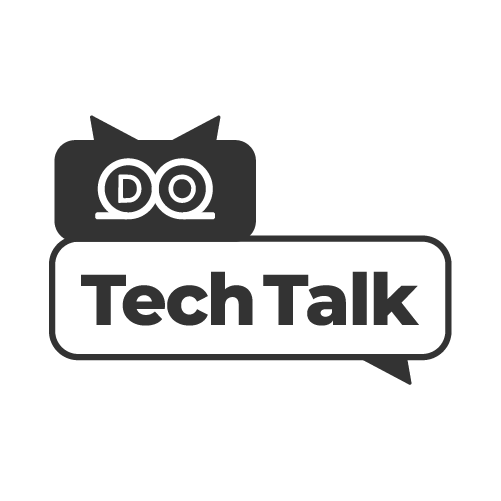The gaming industry is evolving rapidly and blockchain technology plays an important role in this transformation. Non-fungible tokens (NFTs) are becoming increasingly popular in gaming because they provide a way for players to truly own in-game assets. This property is recorded on the blockchain, ensuring transparency and security.
In this blog post, we’ll explore the future of NFT games. We’ll discuss the latest trends in NFT gaming, the challenges and opportunities facing the industry, and how NFTs are changing the way we play.
What are NFTs?
NFTs, or non-fungible tokens, are unique digital assets that cannot be duplicated. They are stored on the blockchain, a secure and transparent ledger that records transactions. NFTs can represent anything from digital art and collectibles to in-game items and virtual real estate.
How are NFTs used in games?
NFTs are used in games in many ways. One of the most common ways is to represent game elements. This can include anything from weapons and armor to skins and pets. When an in-game item is represented by an NFT, it truly becomes the property of the player. This means that the player can trade the item, sell it on a secondary market, or even take it with them to other games that support NFTs.
Another way to use NFTs in gaming is to create games that can be played to earn money. In these games, players can earn NFTs or tokens by completing in-game tasks. These tokens can then be exchanged for real currency. Play-for-profit games offer a new way for players to earn money while having fun (more about this in the next section).
The latest trends in NFT games
1. Play to win matches
Play-to-earn (P2E) gaming is an exciting new trend in the gaming industry. These games allow players to win real money by playing. Players can earn money by completing in-game tasks, such as fighting other players, completing quests, or collecting items. The money players earn can be used to purchase in-game items, withdraw to a cryptocurrency wallet, or even pay for real-world expenses.
P2E gaming is still in its infancy, but it has the potential to revolutionize the gaming industry. It provides a new way for players to earn money and can also provide a sense of ownership and community.
How do P2E games work?
P2E games use blockchain technology to track ownership of game assets. This means that players can own the items they earn in the game. These items can then be traded or sold on NFT markets. This new approach turns gaming from a mere hobby into a potential source of income.
What are the Benefits of P2E gaming?
- Financial Opportunity: P2E games offer players the opportunity to earn real money through gameplay. This can be a great way for players to earn some extra money or even support themselves financially.
- Ownership: P2E games allow players to own items they obtain in the game. This gives players a sense of ownership and control over their in-game assets.
- Community: P2E games can create a sense of community among players. Players can work together to earn money and can also exchange and sell items with each other.
What are the Challenges of P2E gaming?
There are also some challenges associated with P2E gaming, including:
- Volatility: The value of in-game currencies can be volatile, which can make it difficult to predict how much money players can win.
- High entry costs: Some P2E games require players to invest a large amount of money to get started. This can be a barrier for newcomers.
- Scams and Scams: There have been some reports of scams and scams related to P2E games.
2. Virtual worlds: unifying realities with NFTs
Virtual worlds are immersive digital environments that allow players to create, explore, and socialize. It is powered by blockchain technology, which allows players to own the game assets they create or acquire. This property is recorded on the blockchain, ensuring transparency and security.
How do virtual worlds use NFTs?
Virtual worlds use NFTs to enhance the player experience in several ways. For example, NFTs can be used to represent:
- Virtual Land: Players can own virtual land, which they can then use to build homes, businesses, or entire cities.
- Architecture: Players can create and own unique architecture in the game, such as homes, businesses, or even entire cities.
- Global Assets: Players can own in-game assets such as weapons, armor, clothing, and even pets.
This feature extends beyond aesthetics, as players can monetize their creations. For example, players can sell their land or virtual assets to other players, or they can rent them for a fee. One of the most interesting aspects of NFT-powered virtual worlds is the blurring of the line between player and creator.
What are the Benefits of virtual worlds for NFT games?
- Unprecedented Creative Expression: Virtual worlds allow players to express their creativity in ways never before possible. Players can create their unique worlds, characters, and stories.
- Community building: Virtual worlds can foster strong communities of players who share common interests. Players can collaborate on projects, trade items, and even form companies.
- Real-world value: Game assets owned by players in NFT-powered virtual worlds have real-world value. This means that players can earn money by selling their assets to other players.
What are the Challenges of virtual worlds for NFT games?
NFT-powered virtual worlds also face many challenges, including:
- Scalability: As virtual worlds grow in popularity, they will need to be able to scale to accommodate more players. This can be difficult because it requires a lot of computing power and storage space.
- Security: NFT-powered virtual worlds must be secure to protect player assets. This presents a challenge, as hackers are always looking for ways to exploit weaknesses in security measures.
- Regulation: Regulation of NFT-powered virtual worlds is still evolving. This can be a challenge for developers and players as they must be aware of the latest regulations.
Challenges and opportunities in NFT games
The NFT gaming industry is growing rapidly, but it also faces some challenges and opportunities.
Challenges
- Regulatory uncertainty: The NFT gaming industry is still in its infancy and there is a lack of regulatory clarity in many jurisdictions. This may make it difficult for developers and publishers to operate in these markets.
- Environmental Concerns: The energy consumption of blockchain networks is a major environmental concern. NFT games can exacerbate this problem as they become more popular.
- Market Saturation: The NFT gaming market is growing rapidly. This could lead to market saturation, which could make it difficult for new games to succeed.
Opportunities
- Cross-game compatibility: NFTs can be used to create cross-game compatibility, allowing players to carry their in-game assets from one game to another. This could make it easier for players to switch between games and could also create new opportunities for collaboration between developers.
- Interoperable items: NFTs can be used to create interoperable items, allowing players to use them in different games. This can make it easier for players to find new games to play and can also create new monetization opportunities.
- Collaborations with artists, musicians, and brands: NFTs can be used to collaborate with artists, musicians, and brands to create unique in-game experiences. This could attract new players to the NFT gaming market and could also generate new revenue streams for developers.
Conclusion
The future of NFT gaming is bright, but it’s important to be aware of the challenges and opportunities facing the industry. By addressing these challenges and seizing opportunities, the NFT gaming industry can revolutionize the way we play.
Read More NFT Blogs:


